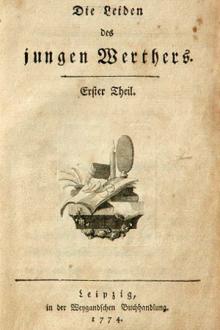author - "Johann Wolfgang von Goethe"

ion, but a paraphrasethat they give. It may perhaps be thought that the present
translations go almost to the other extreme, and that a renderingof metre, line for line, and word for word, makes it impossibleto preserve the poetry of the original both in substance and insound. But experience has convinced me that it is not so, andthat great fidelity is even the most essential element of
success, whether in translating poetry or prose. It was thereforevery satisfactory to me to find that the principle laid down byme to myself in translating Schiller met with the very general,if not universal, approval of the reader. At the same time, Ihave endeavoured to profit in the case of this, the younger bornof the two attempts made by me to transplant the muse of Germanyto the shores of Britain, by the criticisms, whether friendly orhostile, that have been evoked or provoked by the appearance ofits elder brother.
As already mentioned, the latter contained the whole of thePoems of Schiller. It

ight charmed me. I sat down upon a plough opposite, and sketched with great delight this little picture of brotherly tenderness. I added the neighbouring hedge, the barn-door, and some broken cart-wheels, just as they happened to lie; and I found in about an hour that I had made a very correct and interesting drawing, without putting in the slightest thing of my own. This confirmed me in my resolution of adhering, for the future, entirely to nature. She alone is inexhaustible, and capable of forming the greatest masters. Much may be alleged in favour of rules, as much may be likewise advanced in favour of the laws of society: an artist formed upon them will never produce anything absolutely bad or disgusting; as a man who observes the laws, and obeys decorum, can never be an absolutely intolerable neighbour, nor a decided villain: but yet, say what you will of rules, they destroy the genuine feeling of nature, as well as its true expression. Do not tell me "that this is too hard, that they only restrain and p

ion, but a paraphrasethat they give. It may perhaps be thought that the present
translations go almost to the other extreme, and that a renderingof metre, line for line, and word for word, makes it impossibleto preserve the poetry of the original both in substance and insound. But experience has convinced me that it is not so, andthat great fidelity is even the most essential element of
success, whether in translating poetry or prose. It was thereforevery satisfactory to me to find that the principle laid down byme to myself in translating Schiller met with the very general,if not universal, approval of the reader. At the same time, Ihave endeavoured to profit in the case of this, the younger bornof the two attempts made by me to transplant the muse of Germanyto the shores of Britain, by the criticisms, whether friendly orhostile, that have been evoked or provoked by the appearance ofits elder brother.
As already mentioned, the latter contained the whole of thePoems of Schiller. It

ight charmed me. I sat down upon a plough opposite, and sketched with great delight this little picture of brotherly tenderness. I added the neighbouring hedge, the barn-door, and some broken cart-wheels, just as they happened to lie; and I found in about an hour that I had made a very correct and interesting drawing, without putting in the slightest thing of my own. This confirmed me in my resolution of adhering, for the future, entirely to nature. She alone is inexhaustible, and capable of forming the greatest masters. Much may be alleged in favour of rules, as much may be likewise advanced in favour of the laws of society: an artist formed upon them will never produce anything absolutely bad or disgusting; as a man who observes the laws, and obeys decorum, can never be an absolutely intolerable neighbour, nor a decided villain: but yet, say what you will of rules, they destroy the genuine feeling of nature, as well as its true expression. Do not tell me "that this is too hard, that they only restrain and p